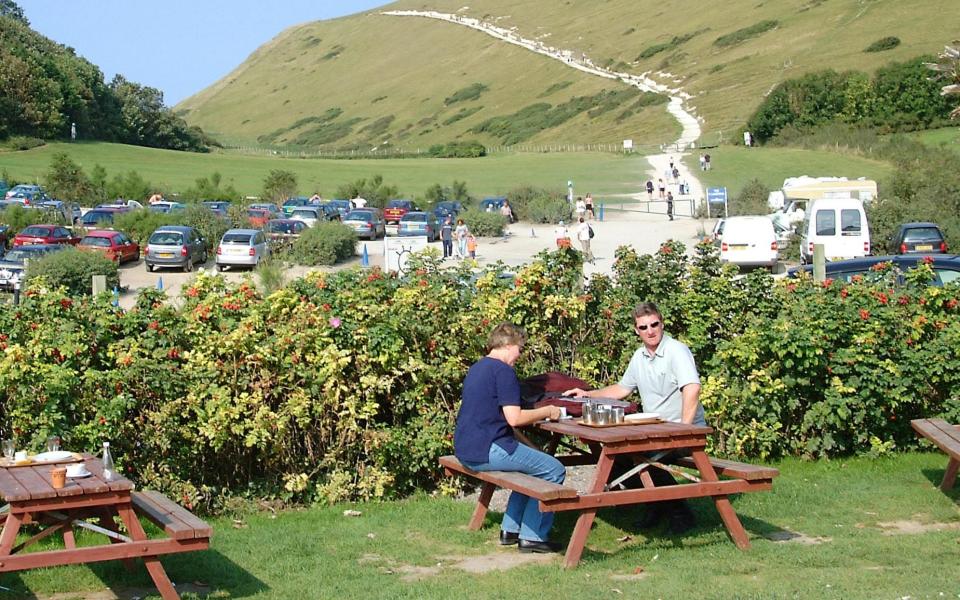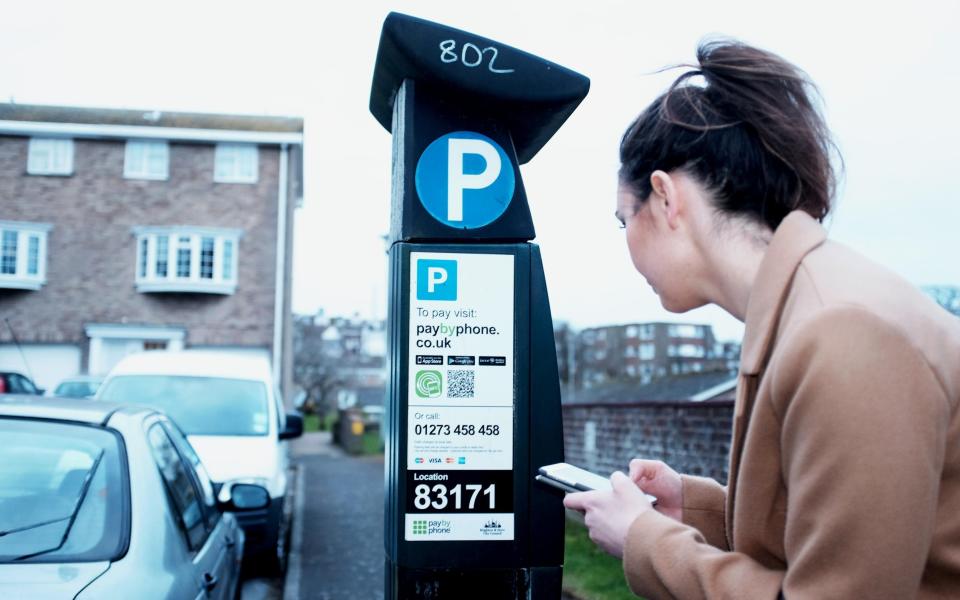The joy you feel when you arrive in a newly discovered city, a beautiful place or a tourist attraction and discover that parking is free is as intense as it is rare.
It’s also a bit sad. When you should be preparing for some sightseeing or a brisk walk, you congratulate yourself on saving a tenner – and 10 minutes of fiddling with your phone while downloading a new app or jumping through the annoying hoops of a phone call.
So consider visitors to Durdle Door, the limestone arch on Dorset’s Jurassic Coast managed by the Weld family’s Lulworth estate. Motorists are now charged £20 for all-day parking, a 66 per cent increase.

Visitors have expressed their outrage on social media. One said, after travelling with his disabled 90-year-old mother-in-law: “Twenty-five minutes later and £10.60 worse off, we left. And you have to pay extra for the privilege of using the parking app! Yes, I should have done my homework first and no, I won’t be going again.”
A local resident complained: “[The] The Weld family… make a pretty penny out of it. I’m not sure I’ll go there again from my lovely home town of Weymouth.”
“People will still pay for it,” said another. “If it was boycotted and no one went, maybe they would consider lowering the prices, but that’s not going to happen.”
The new rates make Durdle Door one of the most expensive areas on the coast for parking.
Suffering on the coast
A recent study by Motorscan ranked the coastal towns with the most expensive parking charges – based on the average cost of a parking space within a 30-minute walk of the city centre over eight hours. Using data collected via parking app Parkopedia, Brighton topped the list, with drivers paying an average of £24.21 per day.
The East Sussex resort – once known as a hotbed of crime and corruption – is almost in a league of its own. The next most expensive was Newquay in Cornwall, with parking costs averaging £12.32. Falmouth came in third with visitors paying £12.12. Visitors to Southend-on-Sea in Essex paid an average of £11.50, while the average cost in Bournemouth was £10.42.


Losing track
It can be even more expensive to leave the car at a train station, for example, to reduce your carbon footprint.
According to research by a car leasing company, London comes out on top. St Pancras station was £31 per day and London Bridge £38 per day. London Paddington, London Waterloo and London Victoria all charge £26 per day.
But to grab one of the 60 spaces in the NCP-run car park at Kensington Olympia train station costs £62 an hour. A full day would cost more than £500.
It’s generally less exorbitant outside the capital, but some station car parks are still very expensive when you factor in local revenue. Glasgow Central charges £25 per day, Birmingham New Street £24 per day and Sheffield’s mainline station £23 per day. A delayed or cancelled train can result in even more annoying fines.
Members only
Some National Trust properties include parking in their entrance fee. Others charge separate fees for entry and parking (unless you are a National Trust member); at Avebury, for example, it’s £7 per vehicle on top of the £6 entrance fee (the alternative to driving is a train and two buses from Pewsey station). Sizergh charges £13 per person for house and garden entry and £9 for all-day parking; as the website notes, the nearest train station is Oxenholme, which is an 11-minute (4.4 miles) taxi ride away, or a “23-minute (4.2-mile) cycle ride along predominantly traffic-free country lanes.”
The National Trust justifies parking charges as follows: “Charging non-members for parking is a way of raising the funds we need. Charges, including any increases, are set locally and by individual sites. A range of factors are taken into account when setting prices, including the charges charged by other car parks in the area, seasonal variations in footfall, the views of local communities and the cost of facilities and maintenance.”
Fight back
Expensive parking charges are deterring local shoppers and having a huge impact on independent retailers, many of whom are desperate to recover from losses suffered during the pandemic. Around 150 people walked the Cobbles in Sandbach, Cheshire, recently after the local council threatened to impose parking charges, with businesses displaying ‘closure’ signs in their windows as part of the move.
Business owners in Watton, Norfolk have launched a petition against controversial plans to introduce charges for their local car parks. Breckland Council, which owns 30 car parks in five Norfolk market towns, says running and maintaining costs total £450,000 a year.


In Weymouth – where parking for two hours can cost £4.50 – more than 5,700 people signed a petition against high parking charges which they say are ruining the seaside economy. Businessman Nigel Sims-Duff told a council meeting: “Parking charges are like a tax on parking and like any tax, if they are too high then revenues will actually fall because people will try to avoid paying them.”
Drivers hate parking apps. The issue of digital exclusion has been raised at ministerial level. Everyone hates airport drop-off fees – which have increased at several major airports this year.
But while the AA and RAC occasionally speak out about excessive parking charges, there is no dedicated ombudsman or similar body to represent car park users. What drivers get back for their £24 a day or £10 a day or £500 a day is often a patch of pockmarked earth with a few puddles, washed-out markings and a remote charging machine that doesn’t accept cash – and a punitive fine if they happen to be late leaving the theatre or cinema.
If public transport were affordable, integrated and reliable – and as heavily subsidised nationwide as it is in the capital – car use would be a luxurious leisure activity and drivers would accept exorbitant parking charges.
But it isn’t. For many families, the only way to get to a beach, attraction or city is by private transport. Should we really pay so much extra for a walk, a museum, a family outing or a view?